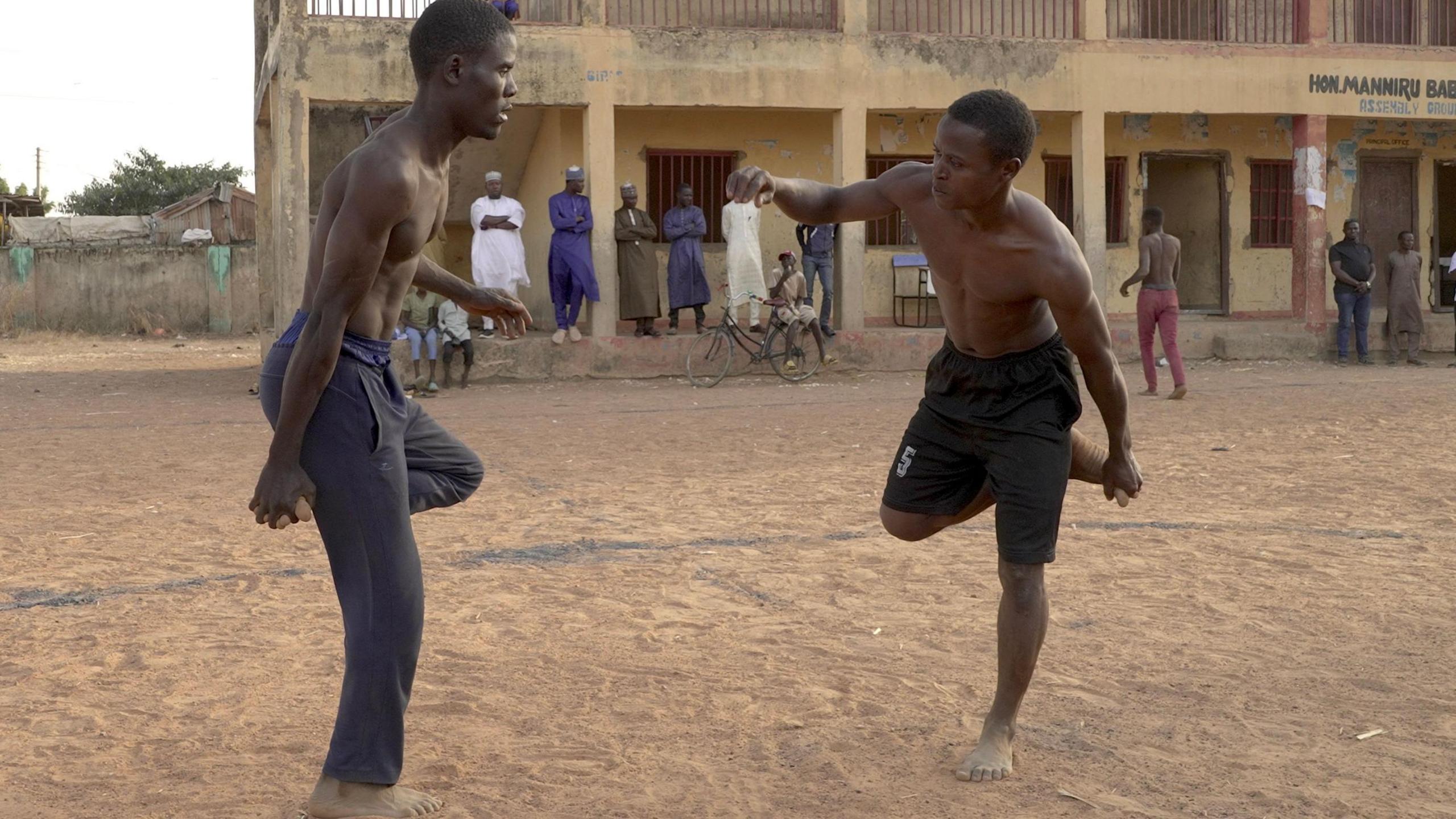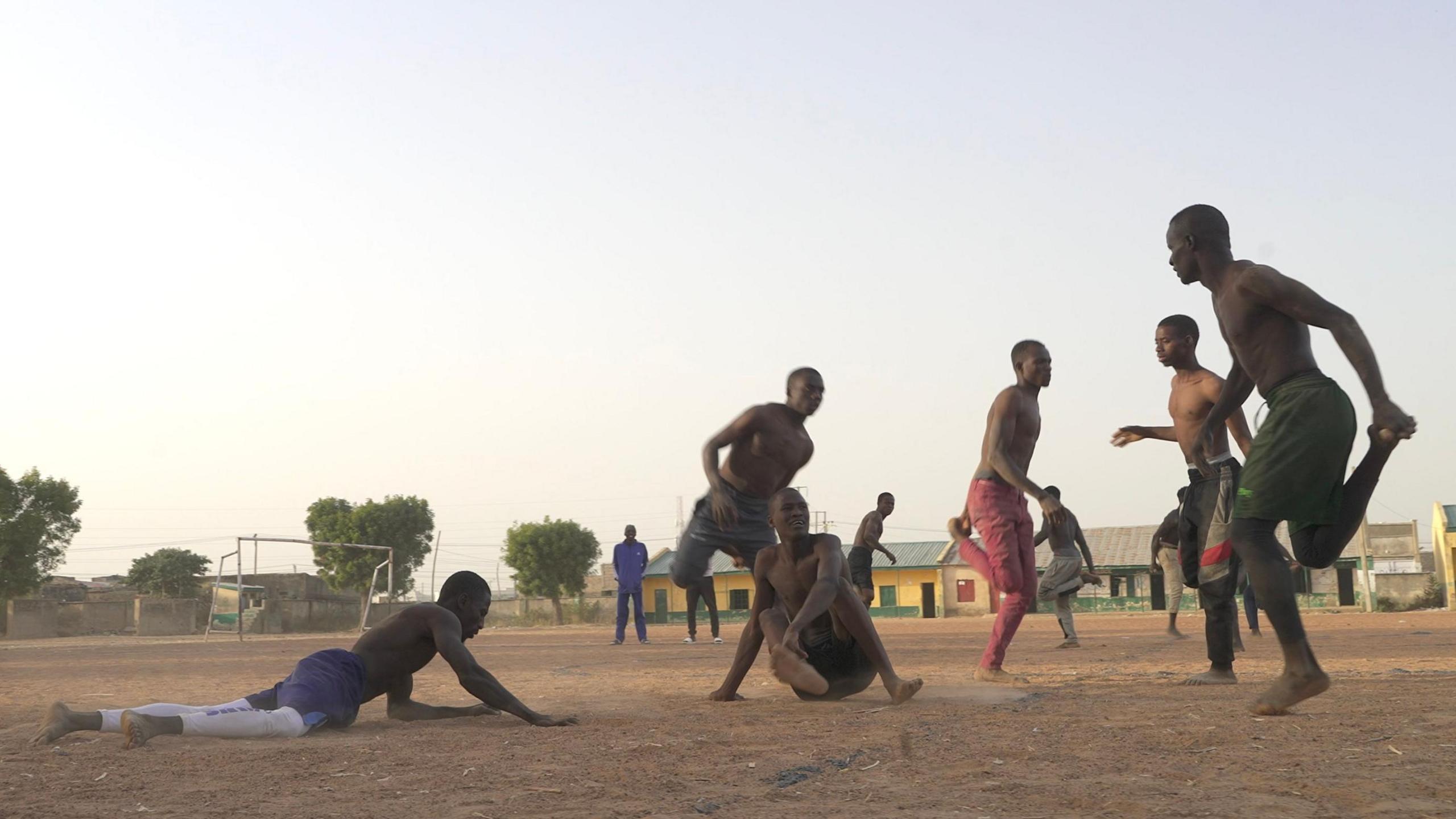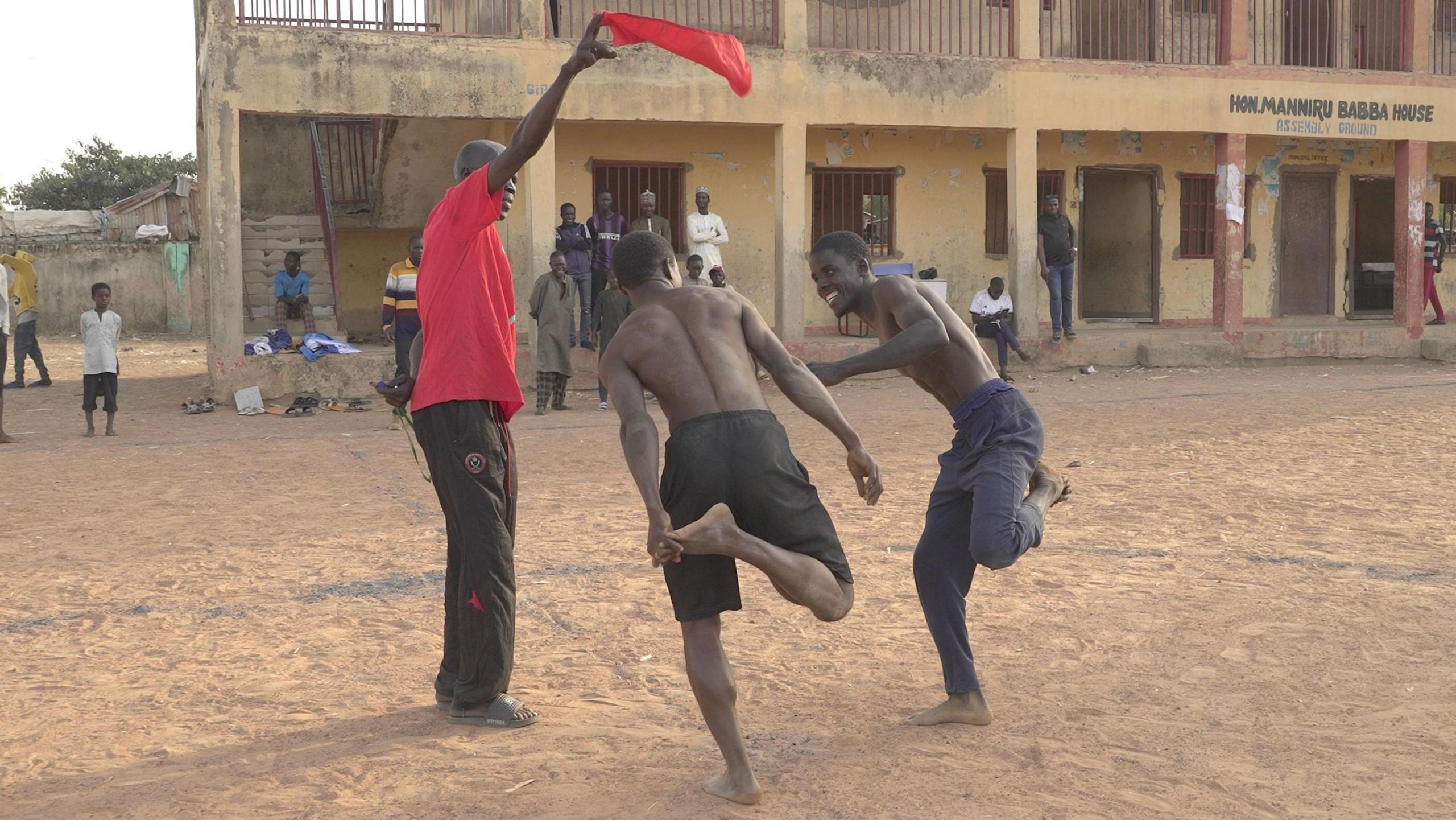The one-legged 'hopping' sport of balance and endurance

Langa traditionally served as a preparatory exercise for warriors in northern Nigeria
- Published
Across the globe, sports have long served as a means of entertainment, fitness and cultural expression.
While the world is familiar with football, basketball and rugby, other traditional disciplines can tell the story of a people and their heritage.
One such game is langa, a unique and physically demanding sport originating from northern Nigeria. Often referred to as the 'hopping game', it is a test of endurance, balance and tactical thinking.
"In Hausa communities, the strongest and bravest were identified through such games," Khalid Hussein, chairman of the Social Langa Club in Kano state, told BBC Sport Africa.
"It was a way to determine those fit for war or other significant roles in society."
Langa is played on a flat open field, often with teams consisting of three to six players, and requires intense core strength.
The objective is to race or outmanoeuvre opponents while hopping on one leg. The rules can vary based on the region or specific competition.
Any player who places their second foot on the ground is immediately disqualified.
Langa is played in either a race or a combat challenge, with winners generally decided over the best of five rounds.
In a race, one player from each team, known as the ruwa (point-scorer), attempts to reach a designated area in the opponent's half. The ruwa wears a headband and is often protected by members of his team during the chase.
In a combat challenge, players attempt to unbalance or knock over their opponents using only their shoulders or elbows while maintaining their one-legged stance.
The match ends when a winner is determined. This could be the last person standing in a combat game or the first to cross the finish line in a race.
More than just a local sport

Through grassroots efforts, school programs and increased media attention, the sport is being reintroduced to younger generations
Though deeply rooted in Nigerian culture, the fundamental principles of langa -balance, speed and strategy - resonate with other pastimes such as martial arts and parkour.
For Jamilu Lawan, a professional player, it has become more than just a cultural tradition.
"I started playing as a child. Today, it has become my profession," he told BBC Sport Africa.
"I gain not only recognition but also many benefits from the game. I get money from langa and have acquired a lot in life."
His experience reflects the potential for langa to evolve into a more structured, competitive sport that could be appreciated beyond its heartland in northern Nigeria.
Meanwhile, the sport's emphasis on lower-body strength and flexibility challenges the body and mind in a similar way to gymnastics or yoga.
"Langa is very important in my life because it makes me stronger and healthier," said Ibrahim Usman, an active player.
Beyond its competitive nature, langa fosters values such as teamwork, discipline and perseverance.
According to Mu'azzam Ibrahim, who has coached teams in Rivers and Bayelsa states in the south of Nigeria, these aspects help the sport serve as a tool for social and personal development.
"Truly, langa teaches many things like friendship, interaction, and education," he told the BBC.
"We are concerned about each other's worries, whether in training, in our interactions outside and at home. Langa unites us as brothers."
A sport on the rise

Hopes are that langa, with its test of endurance and ability to manoeuvre in challenging conditions, can expand to new territories
Langa is beginning to gain recognition beyond its traditional home and was first featured in the Nigeria National Sports Festival in 1996.
Social Langa Club chairman Hussein envisions an even bigger stage.
"We want to see langa included in the West African Games, and eventually, European competitions," he said.
The simplicity of the game would make it easy to introduce in schools and communities worldwide. Like hopscotch or tag, langa requires no expensive equipment - just space, skill and determination.
As modern sports continue to dominate global entertainment, traditional games like langa face the challenge of remaining relevant.
However, through cultural preservation efforts and media exposure, there is hope that langa can find a place on the world stage just like traditional sports such as capoeira (Brazil), kabaddi (south Asia), and sepak takraw (south-east Asia) have gained global recognition.
"Langa is not just about competition," Hussein said.
"It is about identity, history, and community."
With the right exposure and continued promotion, langa has the potential to become an international sport that bridges cultures through its unique combination of athleticism and strategy.